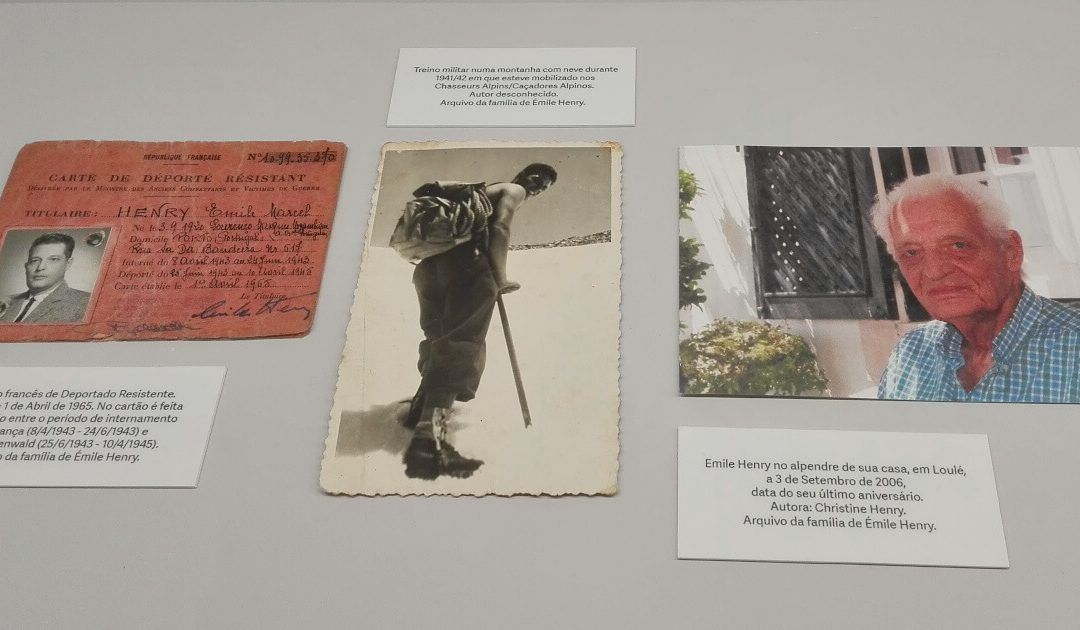This workshop aims to promote didactic projects in the classroom linked to the forced labor of Spanish and Portuguese during the Third Reich. Organized in collaboration with the Professional Development Institute (IDP) of the University of Barcelona, the workshop is one of the activities of the European project Portuguese and Spanish Forced Laborers under National Socialism: History, Memory and Citizenship.
This activity has thirty seats available. The registration period is open from March 13 to March 22.
The seminar addresses the question of forced labor in the historical framework of the development of National Socialism in Germany and the brutal system implemented by this political doctrine on a European scale. Numerous European countries—occupied or incorporated into Nazi Germany’s sphere of influence during World War II—provided slave labor necessary to maintain the industrial and war machinery.
In this global context, there is a need to approach specifically the case of Spanish and Portuguese nationals who were subjected to forced labor during the Third Reich. Officially, both Spain and Portugal were neutral countries in the Second World War, which makes it more complex to study the role of Spanish and Portuguese women in that context, for example. However, the approach proposed in this workshop allows investigating this supposed neutrality and project the different implications of the Iberian dictatorships in the historical framework of the Second World War. Studying the relationship that these forced laborers had also allows us to delve deeper into issues such as the Spanish Civil War and republican exile, the Francoist dictatorships and, or the migratory processes that occurred in both countries.
Methodology
The methodological approach of this workshop follows three lines. In the first place, the theoretical and conceptual deepening on the historical and memorial perspective of the Portuguese and Spanish forced laborers in the Third Reich. Secondly, the work on the sources available for research and teaching on this topic. And, finally, the relationship between these theoretical and procedural contents, and their potential didactic development in the classroom.
In this way, the four sessions, organized in two seminars, will combine theoretical-practical methodologies, including magisterial conferences and the most dynamic and participatory workshops’ methodologies. At the end of the seminar, each participant will have developed their own idea for practical uses of the contents in the classroom.
Addressee
- Secondary and high school teachers
- Other educational agents
Goals
- Work on updating content on deportation and forced labor during the Third Reich.
- Strengthen the Iberian transnational perspective for the treatment of forced labor, deportation and the Holocaust.
- Bring the voice of experts on forced labor in the Third Reich closer to the teaching public in Catalonia.
- Generate a specific knowledge space around forced labor during the Third Reich from an Iberian perspective.
- Project ideas and reflections of a didactic nature on the issue of forced labor during the Third Reich.
- Promote educational interest on the Spanish and Portuguese participation in deportation and forced labor during the Third Reich.
- Promote future lines of pedagogical work around forced labor, deportation and the Holocaust.
Trainers
- Akim Jah. Archival specialist. International Tracing Service. Arolsen Archives. International Center on Nazi Persecution
- Claudia Ninhos. Professor and researcher. New University of Lisbon
- Cristina Climaco. Professor and researcher. Paris VIII University
- Dave Gonzalez. Coordinator of educational projects. European Observatory of Memories (EUROM) of the Fundació Solidaritat UB
- Elisabeth Schwabauer. Archival specialist. International Tracing Service. Arolsen Archives. International Center on Nazi Persecution
- Elke Gryglewski. Director of the Bergen-Belsen Memorial
- Juan Calvo. Director of the Mauthausen Amical
- Jordi Algué. Archival and documentation specialist
- Jordi Barra. cartography specialist
- Judith Sabido. Professor and researcher. University of Vic
- Martha Simon. Researcher of the ISOR research group. Autonomous University of Barcelona
- Pamela Castillo. Educator. Buchenwald Memorial
Calendar and schedule
Seminar 1
- 1st session. Friday, March 24, from 3:00 p.m. to 8:00 p.m.
- 2nd session. Saturday, March 25, from 9:00 a.m. to 2:00 p.m.
Seminar 2
- 1st session. Friday, April 21, from 3:00 p.m. to 8:00 p.m.
- 2nd session. Saturday, April 22, from 9:00 a.m. to 2:00 p.m.
Modality
- Onsite. The first session (March 24) will take place in the Gabriel Oliver room of the Historical Building of the University of Barcelona. The other sessions will take place in the Professors’ room of the Faculty of Philology at the Historical Building of the University of Barcelona.
Workload
- 30 hours (20 hours of assistance to the workshop and 10 hours of personal work)
Certification requirements
- Attendance at 80% of the face-to-face sessions, active and participatory attitude, positive assessment of the tasks guided by the trainers.
Further information and inquiries:
- idp.cursos@ub.edu
+34 934 021 024

